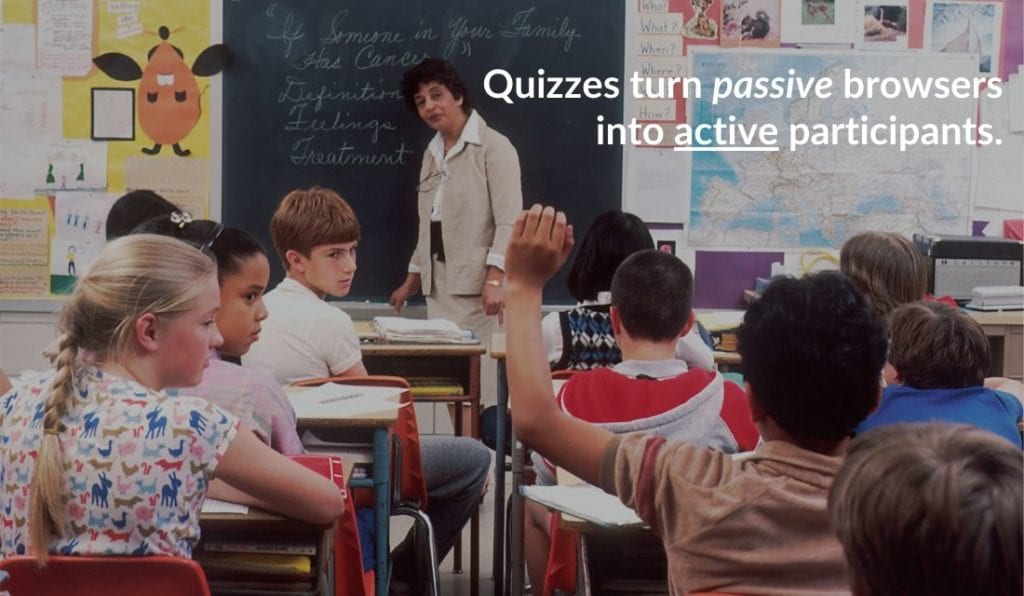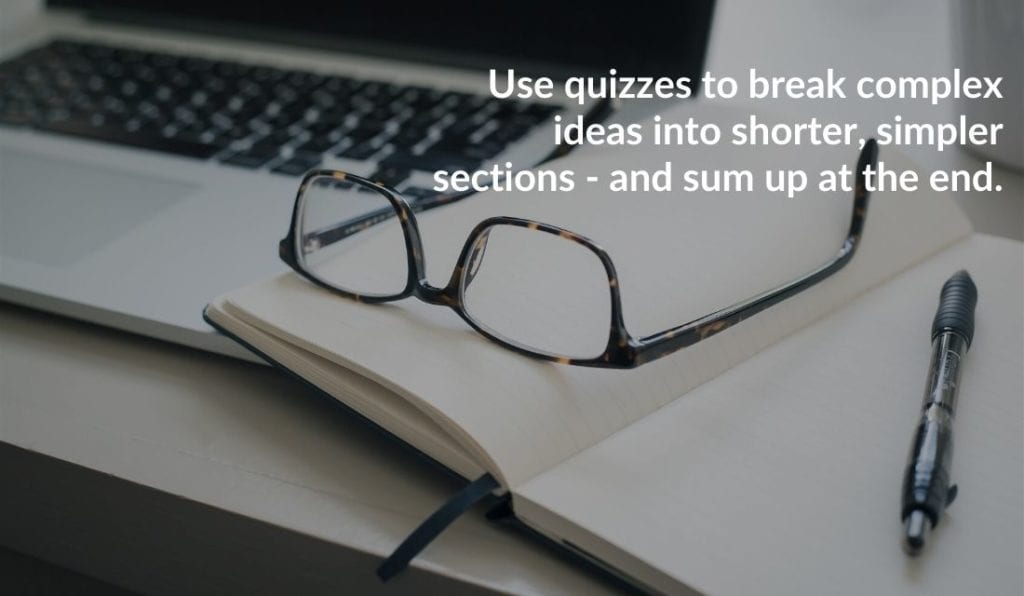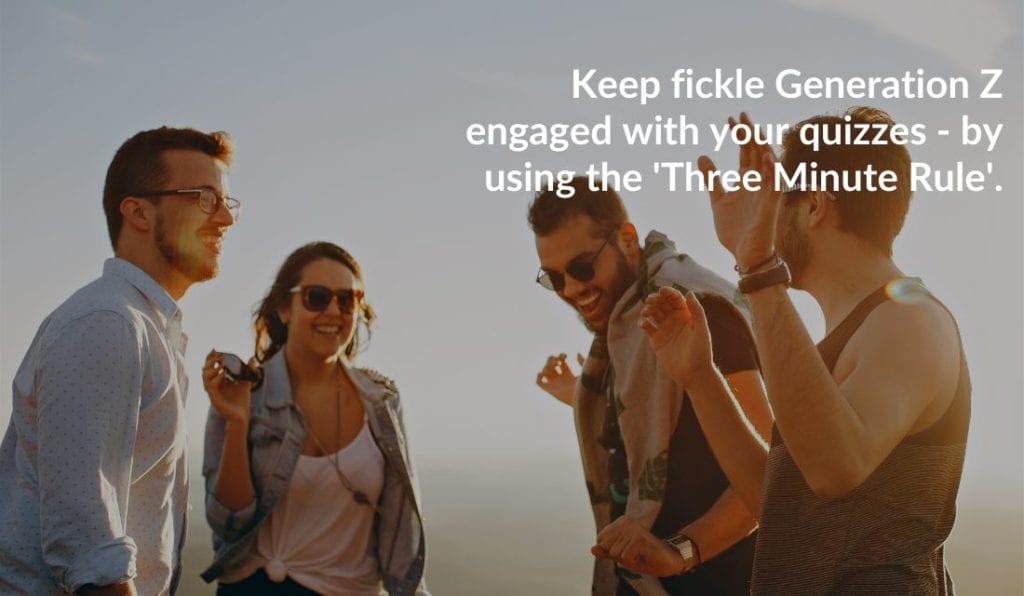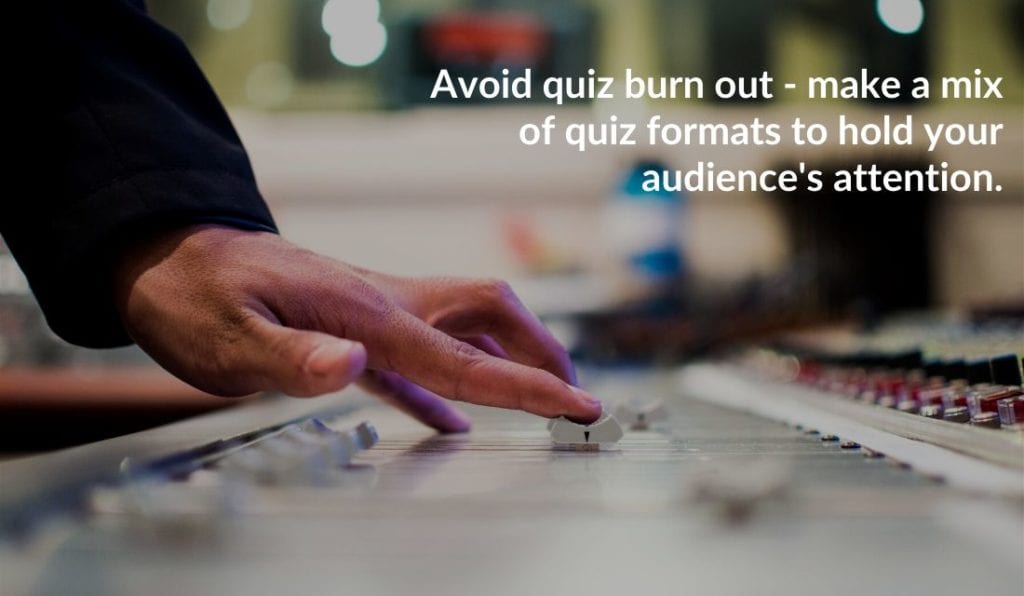What Teachers Can Tell You About Crafting Killer Online Quizzes
Quizzes have proven to be a valuable tool – they’re one of the most effective ways to get leads and drive sales with opt-in rates of 20-25% (and up to 50%!). However, there is both an art and a science to take into account when designing quizzes or else they risk falling flat and making your campaign ineffective.
It might surprise you, but marketers’ best source of quiz inspiration can come from school teachers. As a former high school teacher, I know firsthand how to use offline classroom skills to engage and educate in an online setting.
Here are five top teaching tips that you can apply to your online quiz design.
Turn Your Quiz Into a Classroom
The first step for marketers is to focus their quiz around active learning techniques. Active learning has been proven to be a much more effective way to teach. Instead of passive lectures, students achieve deeper understanding through lessons structured around working directly with each concept.
 Any good teacher knows that you have to consistently engage students by going up to them, asking questions, and guiding them along the learning process. Constant interaction, a core tenet of active learning, increases their engagement and ultimately their ability to learn.
Any good teacher knows that you have to consistently engage students by going up to them, asking questions, and guiding them along the learning process. Constant interaction, a core tenet of active learning, increases their engagement and ultimately their ability to learn.
But this idea of active learning isn’t limited to the classroom setting. For example, imagine you’re watching television.
Most of the time, when we watch television we remain generally unengaged – we might simultaneously also be checking Facebook and answering emails. However, if you watch a show that involves active participation – for example, Jeopardy! – you constantly interact with the program, thinking about the questions and shouting out answers throughout the episode.
The beauty of online quizzes is that they also evoke this active learning amongst users. Traditional marketing campaigns often try to throw as much information at someone as possible, hoping that something sticks. Online quizzes, on the other hand, actively engage each user with a range of question formats, rich content, and branching logic in a way that replicates the classroom setting.
In short, treat your potential customers as a teacher would approach their students. A good quiz can act as its own mini-classroom, where students are able to ask questions, get feedback, and then retain what they learned.
Keep it Simple… Silly
In addition to active learning, effective teachers break down complex ideas into bite-sized sections. The goal is to make sure that material is as clear and digestible as possible for students.
In education, savvy teachers prepare for each subject through the creation of lesson plans. These overviews help teachers organize complex ideas into shorter, simpler chunks that combine together to reach a broader goal.
 As a marketer, you can develop your quizzes the same way that a teacher would craft a lesson.
As a marketer, you can develop your quizzes the same way that a teacher would craft a lesson.
Keep it simple for your quiz-takers and present each question and explanation as a mini-lesson – and make sure to sum everything up at the end. This way, you can be sure each of your quiz takers and potential clients are a receptive audience for your marketing messaging.
Treat Marketing Campaigns Like a Semester of Classes
Quizzes themselves shouldn’t be single events: It can be easy to view them as ‘one and done’ experiences. But when it comes to interactive marketing campaigns, you should approach quizzes as if you were a teacher teaching at the start of a school semester.
Each term, teachers begin without insights into who their students are: their strengths, weaknesses and even names. But through the course of the semester, teachers get to know their students and can then tailor their teaching efforts to help them as much as possible. For example, imagine giving your class multiplication exercises – it’s easy to see how much they’ve learned and improved week on week.
 Marketers face the same issue. At the start of a campaign, you know nothing about your potential clients. But if you adopt a classroom approach for quizzes in your marketing funnel, you could easily gain a wealth of voluntarily given zero party data to help qualify each lead.
Marketers face the same issue. At the start of a campaign, you know nothing about your potential clients. But if you adopt a classroom approach for quizzes in your marketing funnel, you could easily gain a wealth of voluntarily given zero party data to help qualify each lead.
For instance, imagine you sell sports clothing online and you’re launching a campaign around the Olympics. You could create a ‘What’s your best Olympic sport?’ quiz that asks six to eight questions around things like ‘Do you prefer summer or winter sports?,’ ‘Team or individual competitions?,’ and so on.
Each quiz question is your opportunity to find out key data such as how often they exercise, their likes, dislikes, and more. And the more data you collect, the more you know about your leads. Use this to your advantage with your follow up marketing – and turn these leads into sales.
Learn How to Engage With the New Generation Z
As they grow older, Generation Z is quickly becoming more and more a force in the marketing world. However, they shop, browse, and consume very differently than their older brethren and marketers need to take this into account.
Teachers, who largely deal with Gen Zs in the classroom, have picked up on a few key guidelines. For starters, Gen Z typically have a 50% lower attention span than millenials, preferring to consume their content in shorter chunks and move on to the next one. Savvy teachers tailor their lessons towards these tendencies, learning and adapting their lesson plans to find the most effective strategies.
 To optimize quizzes for Gen Z, you need to be able to capture these potential customers before they swiftly move on to the next piece of content.
To optimize quizzes for Gen Z, you need to be able to capture these potential customers before they swiftly move on to the next piece of content.
You should follow the “three-minute rule” when it comes to your quiz. Sure, it can be tempting to keep adding ‘just one more’ question – but resist that urge and keep to a hard 180-second cap. This will allow Gen Zs to quickly take your quiz, find out something about themselves, and share it with their friends to repeat the cycle.
Variety is the Spice of Life
Remember back to your most exciting classes? How about the most boring?
It’s a safe bet your favorite teacher kept things hopping. In the classroom, good instructors know that you can’t stick to just one pace or format – a lesson technique that works well one day will become less effective the 3rd, 4th, or 5th time they try it. Master teachers know that they need to frequently shake it up to keep their students learning.
 When it comes to marketing, switching it up is just as beneficial: Don’t get married to one format. Mix long-form content such as longer quizzes and personality tests with short-version bite-size chunks like polls and quick-hitters. Make sure your quiz maker goes beyond the standard quiz/poll options and has a large variety of formats to give your campaigns added creative flexibility.
When it comes to marketing, switching it up is just as beneficial: Don’t get married to one format. Mix long-form content such as longer quizzes and personality tests with short-version bite-size chunks like polls and quick-hitters. Make sure your quiz maker goes beyond the standard quiz/poll options and has a large variety of formats to give your campaigns added creative flexibility.
Wrapping Things up Before the Bell…
Sure, as a polished marketer, you might think that your days in the classroom are long over. But applying these tried and true tactics is essential in order to thrive in the digital age.
If you’re using quizzes in your campaigns for lead generation and engagement, learning from the masters of the classroom isn’t just a smart move – it’s the only move.









